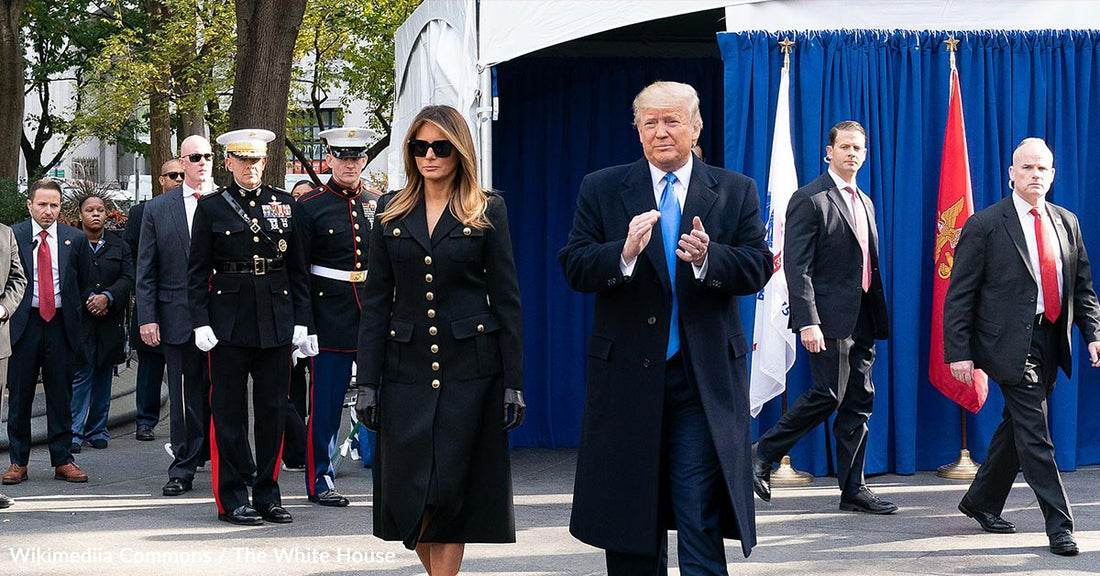Veterans Condemn Trump's Plan to Celebrate War Victories
Matthew Russell
The recent announcement by President Donald Trump to rename Veterans Day has sparked significant backlash from veterans, advocacy groups, and even the White House itself.
While the intention behind the proposal was to celebrate U.S. victories in World War I and World War II, critics argue that the renaming would misrepresent the true essence of the holiday, which honors the sacrifices made by veterans from all conflicts.

Veterans Day has always honored the sacrifices of all veterans, not just specific conflicts.
A Symbol of Remembrance or Victory?
Veterans Day, originally established in 1919 as Armistice Day to commemorate the end of World War I, was later expanded to honor all U.S. veterans. In 1954, Congress formally renamed the holiday Veterans Day, ensuring that all military personnel who served the nation were recognized. The new proposal to change November 11 to “Victory Day for World War I” and May 8 to “Victory Day for World War II” has many veterans questioning the motives behind the move.
Veterans advocate and retired Lt. Colonel John Paradise expressed concern, noting that Veterans Day is not about celebrating victories, but about remembering those who served.
"It is not about victory over an opponent or in war,” he told Western Mass News, adding that renaming the holiday would undermine its purpose. “Veterans’ day has never been about celebrating victories. It’s always been about remembering and honoring our veterans.”

Photo: Wikimedia Commons / The White House, License: Public Domain
President Trump proposed renaming Veterans Day to "Victory Day for World War I."
Legal and Historical Implications
While the idea of renaming the holiday has triggered widespread criticism, there are also legal questions surrounding its feasibility. According to a report by Newsweek, a president alone cannot unilaterally change the name of a federal holiday. Only Congress holds the power to establish and amend national holidays. This means that for Trump’s proposal to become a reality, Congress would need to pass a law approving the change.
The original intent of Veterans Day was to mark the end of World War I, specifically the signing of the armistice on November 11, 1918. The shift to recognizing all veterans was formalized in 1954, and the holiday continues to be a solemn reminder of the sacrifices made by servicemen and women. The renaming would exclude the vast majority of the 15.8 million living veterans, many of whom served in conflicts like the Vietnam War, Iraq, and Afghanistan.

Trump also suggested renaming V-E Day as "Victory Day for World War II."
Veterans Speak Out Against the Name Change
Veterans groups have been vocal in their opposition to the proposal. Allison Jaslow, CEO of Iraq and Afghanistan Veterans of America, criticized the move, and told the The New York Times, "Veterans Day should be an acknowledgment of the ways that fellow Americans have served and sacrificed to protect and defend what we have in America.”
Jaslow added that renaming the holiday would ignore the sacrifices made by veterans who fought in more recent wars, pointing out that “it is not the veterans’ fault if we don’t win wars.”
Rob Couture, a spokesperson for the Veterans of Foreign Wars, also expressed concerns, stating that the holiday should honor all veterans who fought for peace. He referred to the law passed in 1954, which expanded Veterans Day to recognize those who served in all conflicts, not just World War I and II.

Veterans groups like the Iraq and Afghanistan Veterans of America opposed the idea.
The White House Walks Back the Proposal
In a rare move, the White House quickly backtracked on Trump’s statement, clarifying that the president’s proposal to rename Veterans Day would not be an official change but rather an “additional proclamation” on the day.
“We are not renaming Veterans Day,” said White House Press Secretary Karoline Leavitt, according to ABC News.
Despite the White House’s clarification, the controversy surrounding the idea has only intensified. Critics argue that renaming the holiday is an unnecessary political move that distracts from more pressing issues affecting veterans, such as cuts to the VA.

Veterans Day was originally established as Armistice Day in 1919, marking the end of WWI.
What’s Next for Veterans Day?
As it stands, Veterans Day remains a significant holiday in the United States, marked by solemn ceremonies, parades, and moments of reflection. While the push to rename the holiday may have been put on hold, it has ignited important conversations about the true meaning of remembrance. The conversation is far from over, and many are calling for a renewed focus on improving the lives of veterans through better healthcare, benefits, and support rather than on changing the names of holidays.
For now, Veterans Day continues to be a day for honoring the sacrifices made by all veterans, regardless of the war in which they served. As the debate rages on, one thing remains clear: the significance of the day cannot be diminished by a name.
Click below to make your voice heard.

